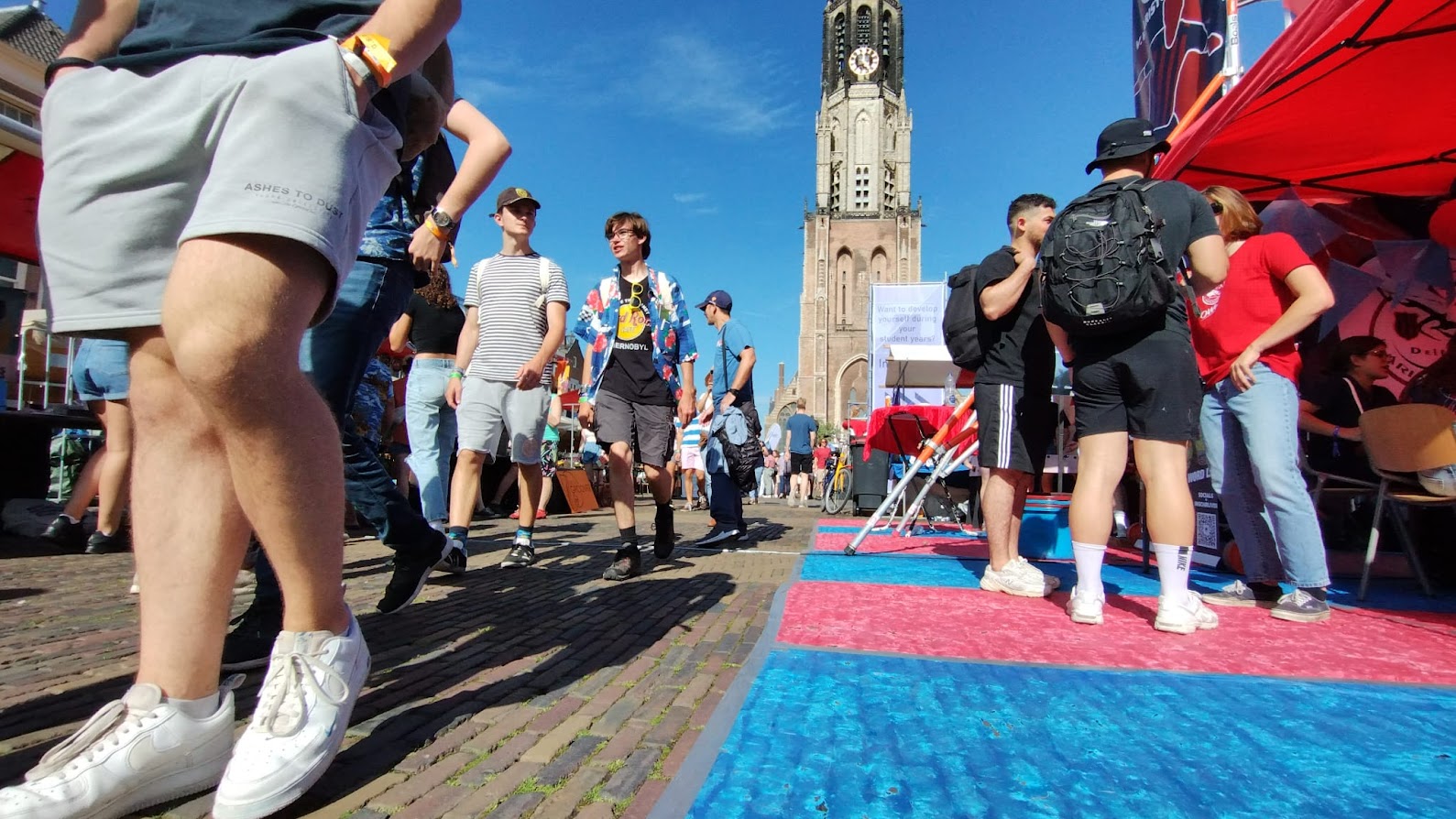Hundreds fewer students than expected joined the OWee and the Introduction Programme. “It’s a shame that we cannot share information on acceptable behaviour with everyone.”
Freshmen looking around the information market. (Photo: Bas Koppe)
People walking around the campus and the city may not think it, but it is very quiet. Hundreds fewer students than expected signed up for the OWee and the Introduction Programme (IP). These intro weeks run almost simultaneously but have slightly different programmes and serve different target groups. The OWee serves first year bachelor students while the IP serves new master’s students, exchange and transition students.
This year, 2,860 students are joining the OWee and 800 the IP, says Alexander Lokhorst, the Community Relations liaison person on behalf of the organisation at a press event. The organisation had expected between 3,300 and 3,400 attendees for the OWee and 2,000 for the IP. Mennolt Verhaar adds that the first-years’ weekends were also quieter than usual. As a senior student and former OWee Board Member, Verhaar was appointed a member of the so-called supervision team. “When I joined the first-years’ weekend of Systems Engineering, Policy Analysis and Management in 2017, there were 280 attendees. Now there were 90.”
A shortfall of 60 mentors
Not only are there fewer attendees, but there are too few volunteers, including mentors, says Verhaar. He would have liked to have had 60 more, even with the lower number of registrants. The groups were thus made bigger, from 10 to 12 first year students. There was also a shortfall in the number of student houses that offered accommodation for OWee attendees. “Last year there were hundreds of houses to sleep in, now there were only 91. This amounts to far fewer places to sleep.” As a solution, X made three sports halls available to sleep in instead of two. All 1,000 beds are occupied.
‘We have never needed to take so many preventive measures’
The reason for the shortfall is clear. The OWee was moved a week earlier after complaints about the introduction week last year. Fireworks were said to have kept school children awake on the Sunday night before their first school day. Lokhorst says that “The OWee now falls in the middle of TU Delft’s holiday. A lot of people are away as they had already booked their holidays.” An added problem for international students is that rooms are often not yet available, adds Verhaar.
Lokhorst is disappointed that so many students are now missing their intro. “Much of the programme is sharing information. We now cannot share information on socially desirable behaviour with everyone. That is a real shame.”
Addressing social problems
Socially desirable behaviour is expressed in campaigns like ‘0.0Wee=OK’ about responsible alcohol consumption and ‘Are you OK’ about transgressive behaviour. According to Lokhorst, the organisation also does whatever it can to reduce problems for other residents of the city. One example is the so-called ‘susteam’ (shush team) that tries to keep students in the Wippolder – the residential neighbourhood next to campus that is full of student houses – quiet. There are also matrix boards that request students to keep quiet on the street in the evenings and at night. Every morning, a security meeting involving 30 people from various stakeholder organisations discuss the previous day and take any necessary measures. “We have never taken so many preventive measures. We are stepping in the shoes of the municipality and the enforcement services,” says Lokhorst.
Is it helping? Lokhorst believes so. After the opening party, 6,000 people needed to make their way home. As planned they did not all leave at the same time and he says that, apart from one student house, it remained quiet in the Wippolder neighbourhood. “We will talk to the house about this immediately.”
Do you have a question or comment about this article?
s.m.bonger@tudelft.nl


Comments are closed.